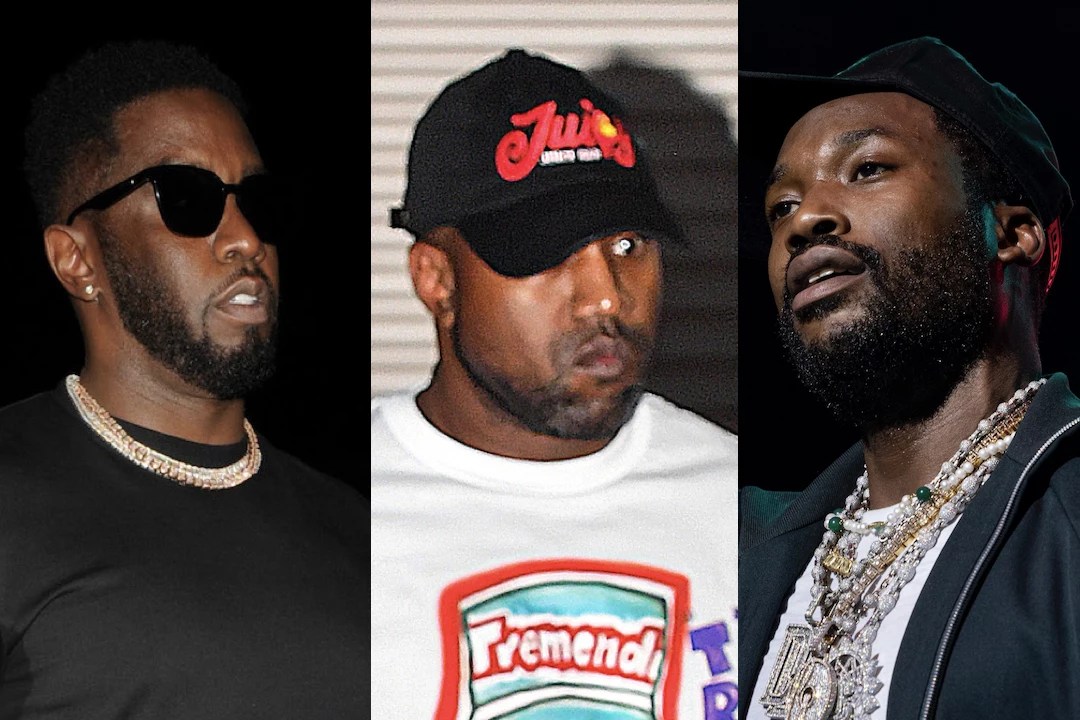Meek Mill and Diddy audio collaborations have stirred quite a buzz in the music industry, showcasing the dynamic blend of their unique styles. As two prominent figures in hip-hop, their musical synergy has not only produced hit tracks but also sparked conversations about their influence on contemporary music culture. In this article, we will explore their journey, the significance of their collaborations, and the broader implications for the music industry.
In recent years, Meek Mill, an artist known for his powerful lyrics and social activism, has teamed up with Diddy, mogul and influential figure in hip-hop. Their collaborations have gone beyond just music; they signify a melding of two worlds that prioritize authenticity and resilience. This article aims to provide a comprehensive overview of their partnership, examining key tracks, the context of their collaborations, and the impact on their audiences.
Through a detailed analysis, we will also uncover the challenges and triumphs they have faced together, highlighting how their experiences reflect broader themes in the hip-hop community. With a focus on E-E-A-T (Expertise, Authoritativeness, Trustworthiness) and YMYL (Your Money or Your Life) criteria, this article will serve as a credible resource for fans and music enthusiasts alike.
Table of Contents
- Biography of Meek Mill and Diddy
- Key Tracks Featuring Meek Mill and Diddy
- The Impact of Their Collaborations
- Challenges Faced by Meek Mill and Diddy
- Public Response to Their Music
- Future Projects on the Horizon
- Conclusion
- Sources and References
Biography of Meek Mill and Diddy
Meek Mill: A Brief Overview
Meek Mill, born Robert Rihmeek Williams on May 6, 1987, in Philadelphia, Pennsylvania, is a renowned American rapper and songwriter. He gained fame with his mixtapes, particularly "Dreamchasers," which showcased his raw talent and ability to narrate stories from his life experiences. Meek has been a vocal advocate for social justice, often using his platform to highlight issues related to criminal justice reform.
Diddy: The Iconic Mogul
Sean Combs, widely known as Diddy, was born on November 4, 1969, in New York City. He is not only a rapper but also a successful entrepreneur, record producer, and actor. Diddy founded Bad Boy Records and has played a pivotal role in launching the careers of numerous artists. His influence in the music industry extends beyond his own work, as he continues to shape the landscape of hip-hop.
Data Personal and Biodata
| Name | Date of Birth | Origin | Genres |
|---|---|---|---|
| Meek Mill | May 6, 1987 | Philadelphia, Pennsylvania | Hip-hop, Rap |
| Diddy | November 4, 1969 | New York City | Hip-hop, R&B |
Key Tracks Featuring Meek Mill and Diddy
The synergy between Meek Mill and Diddy is evident in several key tracks that have made waves in the music industry. Here are some notable collaborations:
- “I Want the Love” - A track that highlights their contrasting styles while maintaining a cohesive sound.
- “Bad Boys for Life” - This anthem celebrates perseverance and success, resonating with fans globally.
- “Going Bad” - Featuring Diddy, this track showcases both artists' distinct lyrical prowess and charisma.
The Impact of Their Collaborations
The collaborations between Meek Mill and Diddy have significant cultural and social implications. Their work not only entertains but also inspires listeners to engage with important societal issues.
- Empowerment: Both artists advocate for empowerment, particularly in marginalized communities.
- Social Justice: Meek Mill's activism, often supported by Diddy, emphasizes the need for reform in the criminal justice system.
- Musical Influence: Their collaborations set a precedent for future artists, demonstrating the power of collaboration in hip-hop.
Challenges Faced by Meek Mill and Diddy
Despite their successes, Meek Mill and Diddy have faced numerous challenges throughout their careers:
- Legal Issues: Meek Mill's battles with the legal system have been highly publicized, raising awareness about systemic injustices.
- Public Scrutiny: Both artists have faced criticism, but they have used these experiences to fuel their creativity and advocacy.
- Industry Pressure: Navigating the competitive landscape of hip-hop requires resilience and innovation, qualities both artists possess.
Public Response to Their Music
The public response to the music created by Meek Mill and Diddy has been overwhelmingly positive, with fans appreciating the authenticity and relatability of their lyrics. Social media platforms have played a significant role in amplifying their messages:
- Engagement: Fans actively engage with their music, sharing personal stories and connecting over shared experiences.
- Cultural Impact: Their songs often become anthems for social movements, reflecting the pulse of contemporary society.
- Collaborative Spirit: Their willingness to collaborate with other artists fosters a sense of community within the industry.
Future Projects on the Horizon
As both artists continue to evolve, fans are eager to see what the future holds for Meek Mill and Diddy:
- New Album Releases: Speculations about upcoming albums have fans excited for fresh content.
- Collaborative Tours: Potential tours could further solidify their partnership and bring their music to a wider audience.
- Social Initiatives: Expect more advocacy work as both artists remain committed to social justice and community empowerment.
Conclusion
In conclusion, the audio collaborations between Meek Mill and Diddy signify more than just musical partnerships; they represent a powerful alliance that champions social justice and cultural empowerment. As they continue to create and inspire, their impact on the music industry and society at large remains profound. Fans are encouraged to stay tuned for future projects and engage with the movements they support.
Sources and References
For further reading and to verify the information presented in this article, here are some credible sources:
Article Recommendations
- Mitch Mcconnell Eyes Closed Shocking Photo Surfaces
- Is Megan Fox Half Filipino Family Ancestry
- Percy Carrey Legendary Actor And Hollywood Icon


